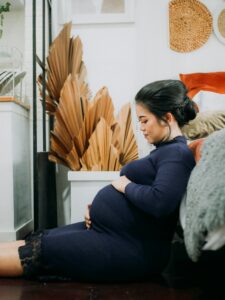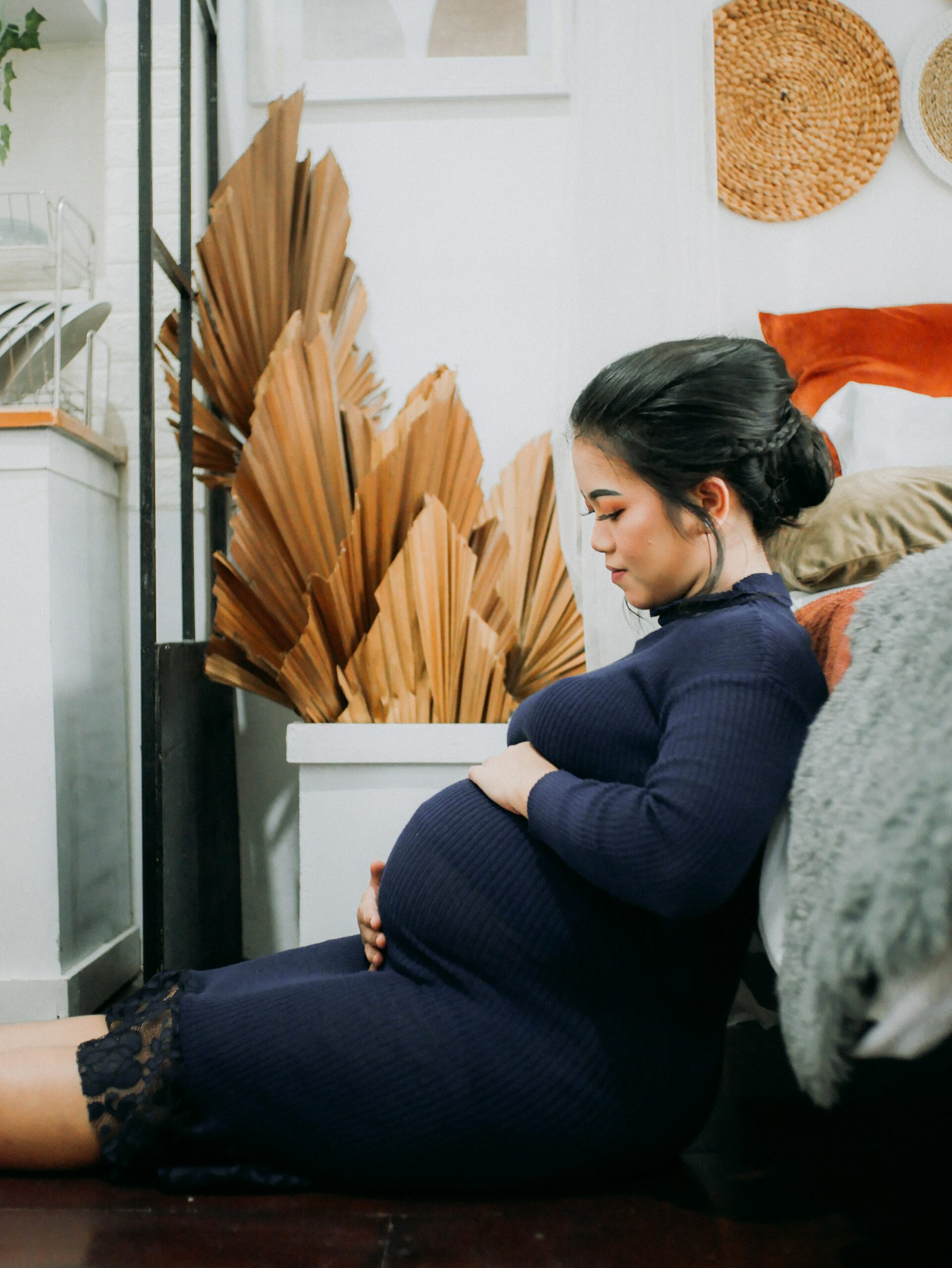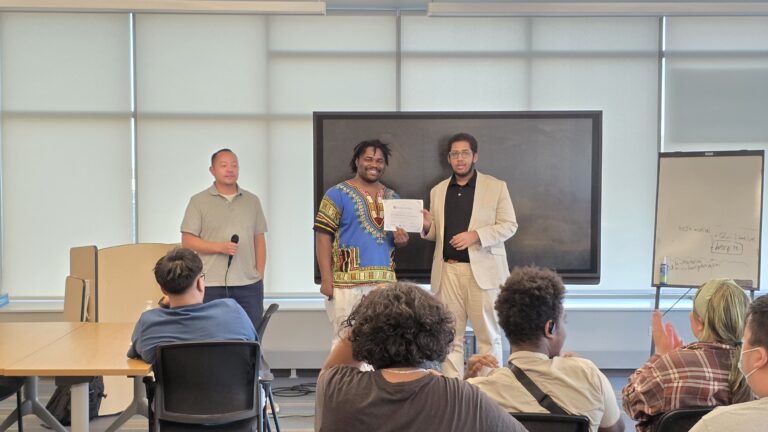Developed by Asian Media Access, Chinese American Chamber of Commerce – MN, and Spitfire
 Minnesota’s Latine communities have been on the frontline of COVID-19 since the beginning. Many work in essential jobs, including agriculture, meatpacking, restaurants, healthcare, and construction. Latine-owned businesses that provide important services to the community have also been hit hard by lockdowns for over two years now.[1]
These essential jobs helped keep us all going throughout the pandemic but also put workers at high risk for COVID. Vaccines can help.
Minnesota’s Latine communities have been on the frontline of COVID-19 since the beginning. Many work in essential jobs, including agriculture, meatpacking, restaurants, healthcare, and construction. Latine-owned businesses that provide important services to the community have also been hit hard by lockdowns for over two years now.[1]
These essential jobs helped keep us all going throughout the pandemic but also put workers at high risk for COVID. Vaccines can help.
 The 2020 Census shows that 6.1% of Minnesota’s population identifies as Latine and has origins in many different places. Vaccines are not new to Latine communities. Many countries in Latin America have strong vaccination programs against tuberculosis (TB), polio, and other viruses.
As of April 27, 2022, 72.9% of Hispanic people in Minnesota had already taken the COVID vaccine, says the Minnesota Department of Health.[2] The high rate of vaccination has helped reduce major illness and death. In April 2021, Hispanic individuals were 1.3 times more likely to get infected, 3 times more likely to be hospitalized, and 2 times more likely to die from COVID than non-Hispanic white people.[3] Data from April 2022 shows that fewer people are now suffering thanks to vaccines.[4]
Protecting family and pregnancy
The 2020 Census shows that 6.1% of Minnesota’s population identifies as Latine and has origins in many different places. Vaccines are not new to Latine communities. Many countries in Latin America have strong vaccination programs against tuberculosis (TB), polio, and other viruses.
As of April 27, 2022, 72.9% of Hispanic people in Minnesota had already taken the COVID vaccine, says the Minnesota Department of Health.[2] The high rate of vaccination has helped reduce major illness and death. In April 2021, Hispanic individuals were 1.3 times more likely to get infected, 3 times more likely to be hospitalized, and 2 times more likely to die from COVID than non-Hispanic white people.[3] Data from April 2022 shows that fewer people are now suffering thanks to vaccines.[4]
Protecting family and pregnancy
 Families are the core of Latine communities. Families are a strong source of support, health advice, and care. Because COVID-19 spreads easily, individual health decisions have a big impact on the whole family. As families grow, it is important to think about ways to keep everyone safe.
This is especially true for pregnant women and babies. When pregnant, the baby’s health is often the top priority. It is natural to be worried about what you put in your body during pregnancy and have questions about the COVID vaccine.
Families are the core of Latine communities. Families are a strong source of support, health advice, and care. Because COVID-19 spreads easily, individual health decisions have a big impact on the whole family. As families grow, it is important to think about ways to keep everyone safe.
This is especially true for pregnant women and babies. When pregnant, the baby’s health is often the top priority. It is natural to be worried about what you put in your body during pregnancy and have questions about the COVID vaccine.
 The vaccine helps keep pregnant mothers and babies healthy. Research shows the vaccine is safe. Vaccines do not harm a woman’s ability to have children or cause problems during pregnancy. Pregnant women are at higher risk for hospitalization and death from COVID-19. The virus also increases the risk of stillbirth and premature birth. The vaccine can help prevent these dangers.
Rodolfo Gutierrez, a Minnesotan and the Executive Director of the HACER research group, adds, “Research shows that babies are even vaccinated themselves through their mothers during pregnancy.” One study from the American Medical Association found that when pregnant women get vaccinated, they pass on some immunity to babies in their womb, protecting them from illness for a period of time after they are born.[5] Other data shows that getting fully vaccinated during pregnancy can help stop infants from being hospitalized with COVID.[6]
Vaccine safety and privacy
The technology used in the vaccine was researched for decades before COVID-19 even came around. Plus, the vaccines have already been used for over a year. Since vaccines were approved in late 2020, authorities have gathered more data and continued to monitor vaccine safety. This research confirms that vaccines are safe and effective.
Vaccines stop people from getting seriously ill and needing to go to the hospital about 90% of the time. The vaccine’s protection lasts many months. Vaccines also help people who have already gotten COVID to avoid getting very sick again.[7]
The state of Minnesota supports everyone’s right to get vaccinated and be protected from COVID-19. You do not need insurance or any documentation to get vaccines.
The vaccine helps keep pregnant mothers and babies healthy. Research shows the vaccine is safe. Vaccines do not harm a woman’s ability to have children or cause problems during pregnancy. Pregnant women are at higher risk for hospitalization and death from COVID-19. The virus also increases the risk of stillbirth and premature birth. The vaccine can help prevent these dangers.
Rodolfo Gutierrez, a Minnesotan and the Executive Director of the HACER research group, adds, “Research shows that babies are even vaccinated themselves through their mothers during pregnancy.” One study from the American Medical Association found that when pregnant women get vaccinated, they pass on some immunity to babies in their womb, protecting them from illness for a period of time after they are born.[5] Other data shows that getting fully vaccinated during pregnancy can help stop infants from being hospitalized with COVID.[6]
Vaccine safety and privacy
The technology used in the vaccine was researched for decades before COVID-19 even came around. Plus, the vaccines have already been used for over a year. Since vaccines were approved in late 2020, authorities have gathered more data and continued to monitor vaccine safety. This research confirms that vaccines are safe and effective.
Vaccines stop people from getting seriously ill and needing to go to the hospital about 90% of the time. The vaccine’s protection lasts many months. Vaccines also help people who have already gotten COVID to avoid getting very sick again.[7]
The state of Minnesota supports everyone’s right to get vaccinated and be protected from COVID-19. You do not need insurance or any documentation to get vaccines.
 Minnesota’s Latine communities have been on the frontline of COVID-19 since the beginning. Many work in essential jobs, including agriculture, meatpacking, restaurants, healthcare, and construction. Latine-owned businesses that provide important services to the community have also been hit hard by lockdowns for over two years now.[1]
These essential jobs helped keep us all going throughout the pandemic but also put workers at high risk for COVID. Vaccines can help.
Minnesota’s Latine communities have been on the frontline of COVID-19 since the beginning. Many work in essential jobs, including agriculture, meatpacking, restaurants, healthcare, and construction. Latine-owned businesses that provide important services to the community have also been hit hard by lockdowns for over two years now.[1]
These essential jobs helped keep us all going throughout the pandemic but also put workers at high risk for COVID. Vaccines can help.
 The 2020 Census shows that 6.1% of Minnesota’s population identifies as Latine and has origins in many different places. Vaccines are not new to Latine communities. Many countries in Latin America have strong vaccination programs against tuberculosis (TB), polio, and other viruses.
As of April 27, 2022, 72.9% of Hispanic people in Minnesota had already taken the COVID vaccine, says the Minnesota Department of Health.[2] The high rate of vaccination has helped reduce major illness and death. In April 2021, Hispanic individuals were 1.3 times more likely to get infected, 3 times more likely to be hospitalized, and 2 times more likely to die from COVID than non-Hispanic white people.[3] Data from April 2022 shows that fewer people are now suffering thanks to vaccines.[4]
Protecting family and pregnancy
The 2020 Census shows that 6.1% of Minnesota’s population identifies as Latine and has origins in many different places. Vaccines are not new to Latine communities. Many countries in Latin America have strong vaccination programs against tuberculosis (TB), polio, and other viruses.
As of April 27, 2022, 72.9% of Hispanic people in Minnesota had already taken the COVID vaccine, says the Minnesota Department of Health.[2] The high rate of vaccination has helped reduce major illness and death. In April 2021, Hispanic individuals were 1.3 times more likely to get infected, 3 times more likely to be hospitalized, and 2 times more likely to die from COVID than non-Hispanic white people.[3] Data from April 2022 shows that fewer people are now suffering thanks to vaccines.[4]
Protecting family and pregnancy
 Families are the core of Latine communities. Families are a strong source of support, health advice, and care. Because COVID-19 spreads easily, individual health decisions have a big impact on the whole family. As families grow, it is important to think about ways to keep everyone safe.
This is especially true for pregnant women and babies. When pregnant, the baby’s health is often the top priority. It is natural to be worried about what you put in your body during pregnancy and have questions about the COVID vaccine.
Families are the core of Latine communities. Families are a strong source of support, health advice, and care. Because COVID-19 spreads easily, individual health decisions have a big impact on the whole family. As families grow, it is important to think about ways to keep everyone safe.
This is especially true for pregnant women and babies. When pregnant, the baby’s health is often the top priority. It is natural to be worried about what you put in your body during pregnancy and have questions about the COVID vaccine.
 The vaccine helps keep pregnant mothers and babies healthy. Research shows the vaccine is safe. Vaccines do not harm a woman’s ability to have children or cause problems during pregnancy. Pregnant women are at higher risk for hospitalization and death from COVID-19. The virus also increases the risk of stillbirth and premature birth. The vaccine can help prevent these dangers.
Rodolfo Gutierrez, a Minnesotan and the Executive Director of the HACER research group, adds, “Research shows that babies are even vaccinated themselves through their mothers during pregnancy.” One study from the American Medical Association found that when pregnant women get vaccinated, they pass on some immunity to babies in their womb, protecting them from illness for a period of time after they are born.[5] Other data shows that getting fully vaccinated during pregnancy can help stop infants from being hospitalized with COVID.[6]
Vaccine safety and privacy
The technology used in the vaccine was researched for decades before COVID-19 even came around. Plus, the vaccines have already been used for over a year. Since vaccines were approved in late 2020, authorities have gathered more data and continued to monitor vaccine safety. This research confirms that vaccines are safe and effective.
Vaccines stop people from getting seriously ill and needing to go to the hospital about 90% of the time. The vaccine’s protection lasts many months. Vaccines also help people who have already gotten COVID to avoid getting very sick again.[7]
The state of Minnesota supports everyone’s right to get vaccinated and be protected from COVID-19. You do not need insurance or any documentation to get vaccines.
The vaccine helps keep pregnant mothers and babies healthy. Research shows the vaccine is safe. Vaccines do not harm a woman’s ability to have children or cause problems during pregnancy. Pregnant women are at higher risk for hospitalization and death from COVID-19. The virus also increases the risk of stillbirth and premature birth. The vaccine can help prevent these dangers.
Rodolfo Gutierrez, a Minnesotan and the Executive Director of the HACER research group, adds, “Research shows that babies are even vaccinated themselves through their mothers during pregnancy.” One study from the American Medical Association found that when pregnant women get vaccinated, they pass on some immunity to babies in their womb, protecting them from illness for a period of time after they are born.[5] Other data shows that getting fully vaccinated during pregnancy can help stop infants from being hospitalized with COVID.[6]
Vaccine safety and privacy
The technology used in the vaccine was researched for decades before COVID-19 even came around. Plus, the vaccines have already been used for over a year. Since vaccines were approved in late 2020, authorities have gathered more data and continued to monitor vaccine safety. This research confirms that vaccines are safe and effective.
Vaccines stop people from getting seriously ill and needing to go to the hospital about 90% of the time. The vaccine’s protection lasts many months. Vaccines also help people who have already gotten COVID to avoid getting very sick again.[7]
The state of Minnesota supports everyone’s right to get vaccinated and be protected from COVID-19. You do not need insurance or any documentation to get vaccines.








